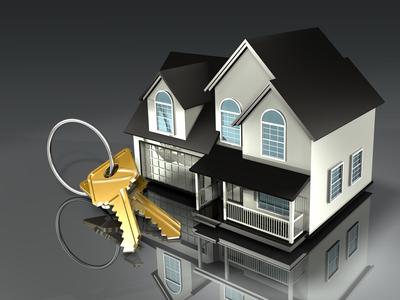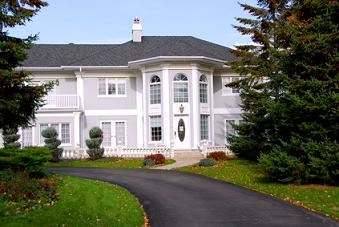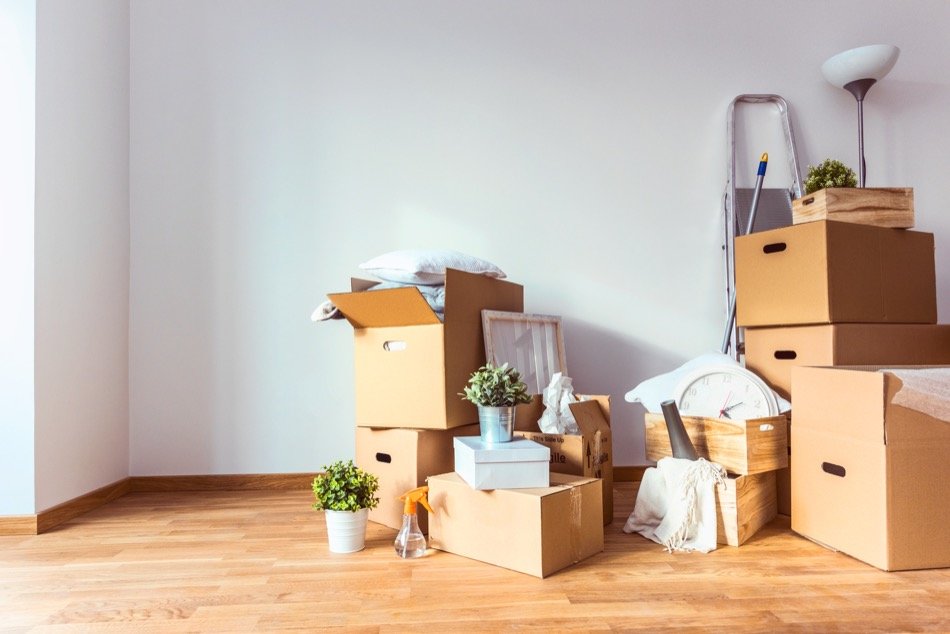How Much Can You Spend on Your First Home?
Posted by Call Centre on Thursday, November 22nd, 2018 at 10:36am.
 If you're like most people in Alberta, you're prepared to spend more than the Canadian average in order to buy a home. According to a new report issued by BMO, called The First-Time Home Buyer's Report, the average that the first time Canadian buyer is planning to spend on their purchase is $300,000. People here in Alberta have loftier goals and expect that they'll be spending $406,000 for their first property.
If you're like most people in Alberta, you're prepared to spend more than the Canadian average in order to buy a home. According to a new report issued by BMO, called The First-Time Home Buyer's Report, the average that the first time Canadian buyer is planning to spend on their purchase is $300,000. People here in Alberta have loftier goals and expect that they'll be spending $406,000 for their first property.
In British Columbia the average was $384,000 while it was even lower in Ontario at an average of $326,000.
The report also goes on to say that 63% of the first-time homebuyers have had to cut back on their budget in order to save for the down payment while 27% expect either their parents or another member of the family to help out with their first home purchase.
One of the most interesting things to come out of the report is the percentage of people that said they would have to put off their home purchase due to the changes in the mortgage rules that were issued last year changing the amortization from 30 years down to 25 years. Only 19% of the people polled that were planning to make a first-time purchase said that they had to put off their home purchase while 66% said that the new changes did not affect how their timeline for buying a home.
One of the most important things to note in this report is that 59% of the people surveyed wished that they had gone ahead with a home purchase five years ago. If you have been thinking about buying a new home the timing may be right for you now and you certainly don't want to be one of the 59% in a future poll that will say that they should have purchased a home sooner.
For informational purposes only. Always consult with a financial advisor before proceeding with any real estate transaction.
How Much House Can You Afford?
Before you go out shopping for the house of your dreams you'll need to know what price range you should be looking at. The closer you can get to the mark of how much house you can afford the easier it will be to track down the right home quickly. A better question to ask, however, would probably be "How much house can you comfortably afford?”
One of the mistakes that many people make is applying for a mortgage right away before taking a look at how much they can comfortably spend on the mortgage payment every month. Once the bank pre-approves the mortgage for a certain amount, it can be assumed that this is how much you'll be able to be able to pay every month on your mortgage. It is the amount that the bank has decided for you but it doesn't necessarily mean that you should base any decisions on this amount at all.
Everybody has their own situations, financial budgets and goals to work with and there is no way that this can all be put into a nice neat package when you are applying for a mortgage. The loan officer is going to be looking at your debt ratio and your income in order to figure out how much of a mortgage the bank will feel comfortable giving you. Sometimes, this amount can be a lot higher than what you can actually afford to pay when all things are taken into account.
If you have three children, for example, that are all heavily into sports, you know how much money this can cost. A large chunk of your budget may be put towards supporting their sporting activities and if you pay a high mortgage their sporting efforts would be affected.
A good place to get started is by using a mortgage calculator that you can find on this site so that you can input numbers that are truly reflective of your own financial situation into it. This will give you a better idea of what you can afford so that you can keep your life balanced while looking for a home that will suit your family's lifestyle.
When you're purchasing a home it's never a good idea to overstretch your limits. It can be hard moving into a new place, getting to know the community and the neighbors around and struggling to get unpacked while you continue on with your day-to-day life. The last thing you’ll want to have on your shoulders is a monthly mortgage payment that disrupts your lifestyle to a degree that you cannot experience easily. You're much better off settling for a smaller place while keeping your eyes on building up enough equity to afford a larger home in the coming years.
How much house can you afford? When it all comes down to it it's going to be you and possibly your significant other that is going to have to determine the final amount. Don't let a bank or any other type of lending institution influence your decision because you're the one who's going to have to pay these monthly payments down the road. It is ultimately your responsibility to make the right choice now as to how much you can comfortably afford.
Putting a Budget in Place for Your First Home in Calgary
 When you're looking for your first home in Calgary you'll be wanting to have a strict budget in place to get together your down payment and closing costs. This can be a stressful time since you not only have to watch your spending but need to look for homes as well.
When you're looking for your first home in Calgary you'll be wanting to have a strict budget in place to get together your down payment and closing costs. This can be a stressful time since you not only have to watch your spending but need to look for homes as well.
One of the things that you can do is put together a realistic budget. The problem that many people have is that they skip over the small things when preparing a monthly or biweekly budget. It's often the smaller things that are overlooked while the larger payments get marked on paper. The smaller things can add up quickly though and may be part of the problem that you're having with your budget.
If, for example, you are spending $2 per day at a coffee shop for your favorite brew, this will add up to $60 a month for coffees only. That's a lot of money when you consider that there are probably other small expenditures that you aren't counting as well.
If you are the type that picks up a lunch every day during the work week this turns into a much larger expenditure. If you spend $5 a day for lunch from Monday to Friday you are easily spending $100 or more monthly for these meals. If you purchase a coffee every day and pick up a lunch you are spending approximately $160 monthly on these items. That works out to be $1,920 yearly. Ouch!
Now that you see how easily these figures can quickly multiply it's time to sit back down with your budget and take an honest look at it. Include all of the smaller items that you haven't included to tally up the total figure. It's at this point that you will be able to see a true projection of your monthly budget.
Sometimes people don't acknowledge the smaller things because they really don't want to give them up. The coffee from the coffee shop down the road may be a mocha latte that tastes oh so good! If this is the case you can look at the benefits of giving it up for a couple months completely in order to stash some extra cash or at least consider cutting down on the amount of coffees consumed per week. Even though it doesn't look like you're saving a lot, multiply this amount to find out how much you'd be saving per year by only getting that special latte twice a week instead of every day.
Sometimes it's the little things that count and you can often make magic happen when you're really intent on home ownership. Now is the time to put some sacrifices in place if necessary so that you can make the transformation from renter to buyer and say goodbye to your landlord.
Adding up the Costs of Purchasing a Calgary Home
You've got your down payment ready to put on your home but you're unclear of the other costs that are involved. Here's a quick rundown of the costs you can expect and when you'll have to pay them. A lot of these expenses cannot be stated as an exact figure since most will depend on the type of house you purchase and how much it costs.
The first expense you can expect to pay for is the mortgage application. You'll probably want to get pre-approved for a loan before starting your shopping and if there is any cost involved with applying for the mortgage you'll have to pay it then.
If you're planning on getting an appraisal or property inspection done, this will be completed before closing. Although you don't have to get the property inspected and it may be optional, it is highly recommended that you spend a small amount to make sure that the residence you are buying is up to code and doesn't present any major problems.
At closing time there are a number of expenses that you'll have to pay while others are optional. Here is a list of the expenditures you can expect to pay when it's time to close the deal:
- Legal disbursements
- Legal fees
- Mortgage and/or deed registration
- Property survey
- Mortgage interest adjustment
- Land transfer, property purchase or deed tax
- Mortgage insurance
- Property and home insurance
When it's time to move in here are some of the other things that you'll have to work into your budget:
- Moving costs
- Utility connections for electricity, water, gas etc.
Other common expenses that you may run into either before, during or after the move include the following:
- Purchasing new appliances
- Making necessary repairs to the new home
- Buying new furnishings
- Redecorating or landscaping costs
- Carpet cleaning
- Professional housecleaning
Find out How Much House You Can Afford in Various Canadian Cities
 We're all pretty much aware that the cost of housing varies dramatically from one Canadian city to the next. In Toronto and Vancouver, the prices are basically out of control. The cost of housing in many other cities across the country, however, is much more reasonable.
We're all pretty much aware that the cost of housing varies dramatically from one Canadian city to the next. In Toronto and Vancouver, the prices are basically out of control. The cost of housing in many other cities across the country, however, is much more reasonable.
In order to afford a home in Vancouver, for example, you'll need to show proof of income that is equivalent to approximately $152,145. The average home price in that city is $810,600. If you're thinking about moving to Richmond, BC, you'll need to be making $99,641 to afford an average home priced at $490,377. You'll need to dig deep into your pockets, however, if you want to call West Vancouver your home since the average price for a home there is $1,757,700 and you should be making at least $320,932.
In Toronto, the average home price is $630,858 and you'll need to show an income of approximately $126,530 to get approved for a mortgage. If you head a bit southwest of there and decide to buy a home in Kitchener-Waterloo, you'll only need to be earning $72,946 yearly to be approved for a $337,386 home in that city. A few hours southwest of Kitchener-Waterloo you'll find some housing price relief in Windsor where the average home price is only $186,612. To afford a home here you could be making as low as $44,888 annually.
In Calgary, you should be making $87,761 to afford the average price of a home at $443,744. Our neighbors just north of us in Edmonton will be looking at average home prices of $359,392 and will need to an income of $74,817 in order to afford a home.
One of the cheapest Canadian cities to purchase a home is Trois-Rivieres, Quebec where the average price of a home is $160,064. In order to afford a home here you should be able to prove an annual salary of $39,379. If you want to live on the East Coast the average home pricing in Newfoundland and Labrador is $282,350 while it is $280,035 in Halifax.
The income amounts are based on a gross debt 32% service ratio and a fixed-rate 5-year mortgage at 2.74% with a down payment of 5%.
Buying a Home? Beware of The Hidden Costs of Homeownership
Anyone who owns a home knows that there are many additional costs associated with owning a home. Many first-time homeowners base their decision to buy a home on their ability to make the monthly mortgage payments. In fact, there are many other costs that go into owning a home than just the mortgage payment.
First-time homeowners are often startled by the hidden costs of owning a home. The traditional housing expenses (principal payments, interest, taxes and insurance) are just the beginning. Maintenance, repairs, supplemental insurance, home improvements and decorating can cost you thousands of dollars a year—more than you expect.
Additionally, a home purchase triggers a series of additional spending on appliances, furnishings and remodelling activities that exceed typical spending levels of non-moving owners or renters and can persist for two years after moving.
Let's take a look at the most overlooked items that tend to be a burden to all homeowners:
Move-in Costs
Home Improvement Costs
 Your new home may require some repairs or remodelling. One of the great things about being a homeowner is the opportunity to put your personal stamp on a house. It’s easy to go overboard with home improvements, though. Relatively few projects add much lasting value to your home, let alone guarantee that you will recoup your costs.
Your new home may require some repairs or remodelling. One of the great things about being a homeowner is the opportunity to put your personal stamp on a house. It’s easy to go overboard with home improvements, though. Relatively few projects add much lasting value to your home, let alone guarantee that you will recoup your costs.
Homeowners are more inclined to purchase luxury items that renters would not, such as granite counter tops, pricey fixtures, alarm systems and other gadgetry. The cost of these luxury amenities can easily add thousands of dollars to the cost of owning a home.
Furnishings Costs
You will also want to budget money for additional furnishings. Since your new home is likely to be larger than your apartment, you will probably need more inexpensive quality furniture. You might also want window treatments, lighting fixtures, carpet or area rugs and appliances, all of which can add up to tens of thousands of dollars.
Ongoing Costs
Monthly Mortgage Payment
Probably this is the easiest to understand. If you have selected a fixed rate mortgage, your lender will tell you exactly how much your monthly payment is going to be.
Property Taxes
Property taxes can be demanding because even if you've paid off the mortgage, you still have to pay a monthly fee to the town and/or the municipality in which you reside. It can easily total $500 to $1,000 or more a month, particularly in large cities where property values have soared in recent years.
Utility Bills
The monthly utility bills such as electricity, gas and others could amount to $400 or more, some current home renters may not be aware of this as most likely it is included with their monthly rent. If you are moving to a condominium, you should also add monthly condominium fees.
Maintenance Costs
How much your home will cost you in maintenance and repairs depends on several factors: the age of the home, how well it’s been treated by previous owners, the harshness of your climate and how much money you want to get out of your home when you sell it.
You should budget between 1% to 2% of your home’s value for annual maintenance. If you bought a $200,000 home, for example, you should set aside at least $2,000 a year, or around $200 a month. Some years you'll spend less, but others you could spend more. A new roof for your home, for example, can cost $4,000 or more.
Naturally, some homes cost more to maintain than others. Older homes usually need more maintenance than newer homes, even if it has been recently renovated. Also, don't assume that because a home is new, it won't need any maintenance for a while. All homes need to be attended to on a regular basis to keep them from falling into a state of disrepair.
Are You Trying to Buy Too Much House?
It’s easy to get caught up in the excitement of buying Calgary house - especially if it is your first home. If you are not careful, though, you may fall into the trap that ensnares many first-time home buyers – trying to buy more house than you can comfortably afford.
What throws home buyers off the most is trying to impress their friends, family members, and even associates by purchasing a bigger house than they really need.
Let’s face it. Human beings are social animals and conditioned to seek the approval of their peers. If people in your social network have 5-bedroom homes sitting on 2 acres of land, you may try to attain that as well, even if you don’t have enough money to pay for it.
To prevent yourself from purchasing more house than you can afford, you’ll need to take a good look at your financial situation. The experts agree that your mortgage should be no more than 30% of your total monthly income. So, if you bring in $5,000 per month, you can afford a mortgage of $1,500 or less per month.
For those in a dual income situation, you should also consider whether each of you can carry the mortgage on your own. If one person loses his or her job, for instance, can the mortgage still be paid with only one source of income? Considering this will help you avoid the unfortunate foreclosure situation that many home owners find themselves in after suffering a job loss or another hit to their income.
It can be tempting to try to keep up with the Joneses and buy more house than you can really afford but keeping your mind on what’s really important will help you overcome that temptation.
The Bottom Line
Being a homeowner brings with it a great sense of pride and gives you enormous stability and security knowing that you will always have a roof over your head, however, it can cost a lot more than you think. So to avoid any unpleasant surprises, make sure you are aware of these extra costs.
For informational purposes only. Always consult with a financial advisor before proceeding with any real estate transaction.
